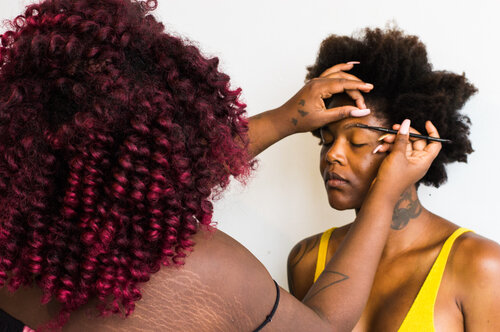- About
- Topics
- Picks
- Audio
- Story
- In-Depth
- Opinion
- News
- Donate
- Signup for our newsletterOur Editors' Best Picks.Send
Read, Debate: Engage.
| topic: | LGBT Rights |
|---|---|
| located: | India |
| editor: | Rishabh Jain |
India's higher education landscape is witnessing a remarkable shift towards inclusivity, thanks to the growing presence and influence of college queer collectives. These student-led groups are crucial in fostering inclusive campus spaces, empowering LGBTQ+ individuals and challenging discriminatory norms.
Through organising various activities, events and awareness campaigns, these collectives are reshaping the academic environment, promoting acceptance and fostering a sense of belonging among queer students.
In September 2018, the Indian Supreme Court made a significant decision by striking down Section 377 of the penal code, which had previously criminalised homosexuality. This legal reform decriminalised same-sex relationships and marked a substantial step towards LGBTQ+ rights in India.
The Transgender Persons (Protection of Rights) Act of 2019 was then passed to prevent discrimination against the transgender community, explicitly addressing discrimination in educational institutions.
This legislation aimed to protect the rights and ensure the inclusion of transgender individuals within educational settings. According to a study by Boston Consulting Group, Indian Institute of Management Ahmedabad, and Pride Circle Foundation, almost two-thirds or 64 per cent of students from the LGBTQIA++ community face discrimination or are ridiculed for their identity.
College queer collectives actively engage in policy advocacy to promote LGBTQ+ rights and institutional changes within their respective campuses. They collaborate with student unions, administrative bodies, and faculty members to push for gender-neutral restrooms, inclusive housing policies, and comprehensive anti-discrimination policies. As a result of these efforts, several colleges and universities have taken significant steps towards becoming more LGBTQ+ inclusive.
Queer individuals often face unique mental health challenges due to societal stigma and discrimination. College queer collectives recognise the importance of mental health support and offer counselling services, peer support groups, and awareness campaigns to address
these issues.
However, not all collectives have obtained official recognition and registration from university authorities as officially sanctioned on-campus groups, which presents challenges. The registration process often involves maintaining an official record of members, which can potentially expose individuals from the queer community without their consent, thereby jeopardising their safety. However, official registration also allows the collectives to involve authorities in addressing issues such as cyberbullying and harassment when necessary.
College queer collectives in India are making a remarkable impact by creating inclusive spaces on campuses. Their efforts challenge societal norms, raise awareness, and support LGBTQ+ individuals.
As we move forward, it is essential to recognise the importance of these collectives and continue supporting their endeavours to build a more inclusive educational environment for all students.
Photo by Sneha Sivarajan.

